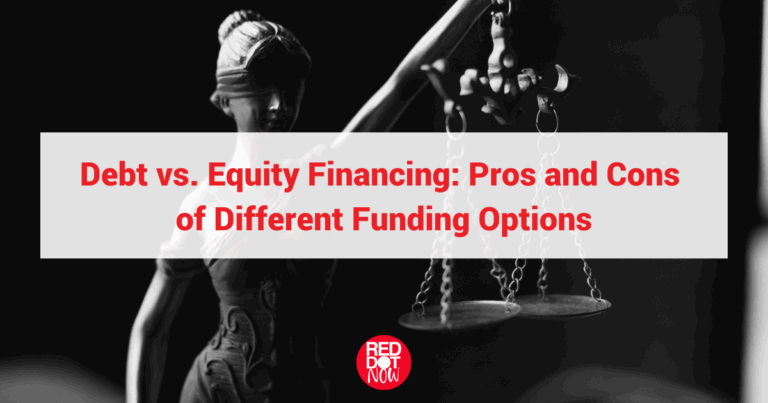
Debt vs. Equity Financing: Pros and Cons of Different Funding Options
Whether you’re launching a startup or scaling operations, understanding the difference between debt and equity financing is key to making smart financial decisions.
DEBT FINANCING. This involves borrowing money, usually from banks or lenders, and repaying it with interest.
Pros:
- You keep full ownership and control.
- Repayments are predictable and often tax-deductible.
- Ideal for short-term needs or specific projects.
Cons:
- Monthly repayments can strain cash flow.
- May require collateral.
- Less flexibility in how funds are used.
EQUITY FINANCING. This means selling a share of your business to investors in exchange for capital.
Pros:
- No repayment pressure – investors earn through growth.
- Shared financial risk and potential strategic support.
- Suitable for high-growth ventures.
Cons:
- You give up partial control and decision-making power.
- Future profits are shared.
- Finding the right investor takes time.
Local Considerations
- Access to capital: Startups may struggle with bank loans, but equity options like angel networks and crowdfunding are growing.
- Compliance: Ensure SARS and CIPC regulations are followed when issuing shares or securing loans.
- Sector trends: Tech and green industries attract equity; retail and manufacturing often lean toward debt.
Red Dot Now provides accounting, payroll and tax compliance services using the best of breed online technology.
Should you want to discuss this, or any of our services further, contact Ryan Coates on e-mail at ryan@reddotnow.com
